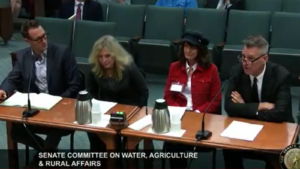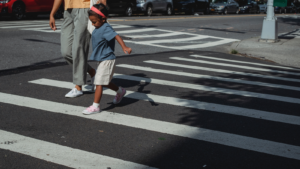
Shelley Livaudais
Former Communications Manager, TexPIRG
Lawmakers acted to curtail surprise medical bills, protect data privacy, improve pedestrian safety, and more.
Former Communications Manager, TexPIRG
Communications Intern
The 88th session of the Texas Legislature ended last week and Texas consumers won some important protections, including new laws to reduce the cost of health care, protect Texans’ data privacy, expand broadband, and improve transportation safety. On the other hand, there were setbacks for voting rights, local control, and corporate welfare and the Legislature failed to adopt right to repair standards or protections for utility consumers.
Here’s what happened with some of the top public interest-related bills on which we worked.
Health care
Americans are spending way too much on health care, and getting far too little in return. Together we can bring down the cost of prescription drugs, prevent surprise medical bills, get providers to rein in skyrocketing costs, and more.
Surprise medical bills – 78% of ambulance rides in Texas are on an out-of-network ambulance. That means that most patients in Texas are exposed to a potential surprise bill from the ambulance, with a median out-of-pocket charge of $656. SB 2476 (Zaffirini) adds ambulances to Texas’ surprise billing standards, protecting people covered by state-regulated health insurance plans (state marketplace and a few other types). That’s an important win for health care consumers!
However, about 70% of Texans have employer-sponsored covered self-funded health plans that are regulated under the federal Department of Labor (called ERISA plans). People insured by those ERISA plans are exempt from state-regulations and that’s why we also need a federal law.

Our Health care campaigns senior director Patricia Kelmar (second from left) spoke about surprise medical bills at the Texas Alliance of Health Plans conference in 2021Photo by TAHP | Used by permission
Importation of prescription drugs– HB25 (Talarico) will allow Texas to import prescription drugs from Canada, where prescription drugs often cost half of what they cost in the U.S., through a Wholesale Prescription Drug Importation Program. The bill ensures big savings for patients, namely the uninsured or underinsured. The bill has been sent to the Governor.
Itemized billing- SB490 (Hughes) requires medical providers to send patients an itemized bill. Currently, patients often receive a “balance due” bill that doesn’t break down individual services and costs, and are not able to check to make sure that the correct services were billed or recorded. Under SB490, medical providers must provide patients with an itemized list of each medical service provided, the amount the provider will accept as payment in full for that service, and a plain language description of the service. This way, costs are transparent and patients are informed on what exactly they are being charged for. The bill has been signed by the Governor.
Physician regulation – HB1998 (Johnson) boosts transparency of physician performance and refines the disciplinary authority of the Texas Medical Board. Under current licensure statutes, many doctors with a history of inappropriate or damaging behavior have been able to continue practicing medicine. This patient safety bill “makes it a crime to lie on license applications, prevents doctors who have had their licenses revoked in other states from practicing in Texas, and requires constant monitoring of physicians.” The bill has been sent to the Governor.
Consumer protection
Protections for electric and gas consumers – According to the Federal Energy Regulatory Commission (FERC), 31% of blackouts during Uri were caused by natural gas production disruptions due in part to a lack of weatherization, resulting in catastrophic shortages of gas available to power plants as demand surged. Even as fellow Texans endured the dangerous cold for days, some Texas gas companies continued to export their products out of state and internationally. Gas prices soared, with some companies crowing about “hitting the jackpot,” with consumers on the hook for billions of dollars in debt. FERC is currently looking into potential market manipulation and has referred two cases to its Division of Investigation for further examination.
SB2129 (Miles) would create an independent market monitor to detect and prevent potential gas industry market manipulation. The bill was left in committee in March.
HB4708 (Bryant) would have, notably, created a gas desk to make sure that ERCOT, which manages the state’s electric grid, has the information it needs to know whether power plants will have enough gas to keep the lights on, or whether to expect more cold-weather drops in production. The bill never got a hearing.
In SB30, the Senate included $3.8 billion in funding to pay off debt owed to natural gas companies from Uri-related charges. The funding would have saved Texas consumers $1 billion in interest. The measure was struck from the bill by the House.
HB4984 (Anchia) would require gas companies to report to the Railroad Commission failures to meet a contractual obligation to supply gas. By understanding the frequency, location, and severity of force majeure events, the Commission and other stakeholders could better prepare for and respond to these events. The bill was left pending in committee.
HB2128 (Bailes) would underline the state attorney general’s authority to enforce action against companies that demand excessive prices for natural gas during a disaster. The bill was left pending in committee.
SB 2627 and SJR 93 (Schwertner) provide low-interest loans for the construction of new methane gas power plants. Building more gas plants won’t necessarily make our electric grid more reliable, but it will cost the state $10 billion. Sent to the Governor.
Right to Repair
Many equipment manufacturers do not provide farmers with the access to necessary resources required to fix modern farming equipment. This leaves farmers reliant on dealerships for repairs, subjecting them to high costs and extensive delays.

TexPIRG’s lobbyist Jason Sabo (right) testified in support of right to repair legislationPhoto by Texas Senate | Public Domain
SB1654 (Kolkhorst) requires farming equipment manufacturers to provide documentation and tools regarding how these electronics work and are repaired.This way, farmers and independent mechanics can diagnose and repair agricultural equipment themselves, in the best interest of both their finances and time-sensitive farming practices. The bill died in committee after a hearing.
A similar bill, HB1606 (Meza), would require all manufacturers of digital electronic equipment to make access to parts, tools, and documentation available to independent shops and owners of that equipment. The bill never got a hearing.
Data privacy
SB2105 (Johnson) creates a framework to regulate data brokers, including registering annually with the state, providing a notice of who they are, what data they collect. Data brokers are shadowy companies that sell our data and put us all at risk of having our data exposed in a breach or a hack, making it more likely we’ll be the victims of fraud or identity theft. More transparency around data brokers and the types of data they collect on us is an important tool for holding them accountable. If this becomes law, Texas will join California and Vermont in implementing data broker registries. This bill has been sent to the Governor.

Companies use smart phones to collect a lot of data on us.Photo by Pexels user Katerina Holmes | Public Domain
Broadband development
Many small and rural communities have few options for reliable, high speed Internet service. It is imperative that we expand the accessibility, reliability, and affordability of this absolutely necessary resource.
SB1238 (Nichols) strengthens the Texas Broadband Development Office through federal grants, updates the definition of broadband access, and adopts standards for what constitutes served, underserved, and unserved locations. Additionally, HB9 (Ashby) creates a $5 billion Texas Broadband Infrastructure Fund. These funds will support “community engagement, broadband expansion and affordability.” Both bills have been sent to the Governor.
Preemption of local control
HB2127 (Burrows) prevents local regulation of matters regulated by state codes. This broad, sweeping bill would deny cities and counties the power to devise and enforce the rules and regulations necessary for their area under the guise of providing businesses “a baseline of regulatory consistency across the state” and relieving cities from the “pressure to duplicate state regulatory and enforcement efforts.” From finances and natural resources to agriculture and jobs, cities would be stripped of their authority to act on the current needs of their municipalities without specific permission from the state. Local elected and community leaders in the Houston area refer to the bill as the “Death Star Bill” and say the bill would “would strip the city and county of its power to enforce local laws protecting its residents.” The bill has been sent to the Governor.
Democracy & Government
We believe in a government of democratic participation where every voice is represented, urgent issues are prioritized, and citizens are informed.
Voter registration crosscheck– Conspiracy theories surrounding voter roll inaccuracy have spread like wildfire, especially since the 2020 election. Distrust of our current method has led to SB1070 (Hughes), which will require Texas to establish an entirely alternate system for updating voter rolls. The state will pull out of the Electronic Registration Information Center, despite there being no evidence of ERIC sabotaging voter rolls. Many are concerned that there is currently no new system to immediately replace ERIC. Sent to the Governor.
County election audits– SB1933 (Bettencourt) allows the Texas Secretary of State to remove county elections officials. Voting rights groups fear this power will be abused, with the Secretary of State potentially interfering in election results with which they don’t agree. Sent to the Governor.
Elections Administrator removal– SB1750 (Bettencourt) eliminates the Elections Administrator position in Harris County, requiring any county with a population of over 3.5 million to have a county clerk manage elections instead of an EA. Currently, Harris is the only county in the state that meets this requirement. Republicans in the state claim that Harris County has been unreliable during elections, but many believe they are targeting Harris due to its control by the Democratic party. Sent to the Governor.
Corporate Welfare
Tax abatements- HB5 (Hunter) creates an economic development program to cut taxes for new manufacturing facilities. The successor to the widely criticized Chapter 313 program is expected to provide billions of dollars in taxpayer support to big polluting companies while excluding renewable energy projects from participation. A major critique of the 313 program was that most recipients of the tax breaks would have been located in Texas anyway. The new program directs the Comptroller to only allow for abatements to companies which “would not otherwise have located” in Texas. This bill was sent to the Governor.
Transportation
Thousands of lives are cut short every year by transportation pollution, and even more are lost to traffic accidents on our roads. For our health, our safety and our future, we need to transform our transportation systems.

Photo by Kamaji Ogino | Public Domain
Crosswalk safety– In the past, drivers who hit pedestrians were not held accountable due to vague laws surrounding crosswalks. HB3558 (Perez) clarifies where a driver is to stop when approaching a crosswalk. They should stop where there is a clearly marked line for stopping, and if none exists, they must stop short of the crosswalk. Sent to the Governor.
“Crash” not “accident”– HB 2190 (Canales) changes the terminology used in state law to describe transportation-related incidents. Highway safety advocates believe the word “crash” more accurately reflects the potential and actual seriousness of incidents than the use of the word “accident.” This, in turn, will result in less tolerance of road danger and more precautionary measures. The term is already used by TxDOT and the U.S. Department of Transportation. The bill has been sent to the Governor.
TxDOT variable speed limits– HB1885 (Canales) grants TxDOT the authority to temporarily lower speed limits in situations such as dangerous weather, congestion, work zones and traffic incidents. After an investigation of a deadly pileup on I-35W in February 2021, the National Traffic Safety Board recommended such “variable speed limits” as a way to improve traffic safety and decrease road deaths. The bill has been sent to the Governor.
Cyclist safety– HB421 (Lopez) would establish guidelines and minimum distances for cars and trucks when passing pedestrians and people on bikes. TxDOT reports that in 2021, 90 bicyclists and 824 pedestrians were killed in road accidents with a motor vehicle. In Austin alone, more than 60 cyclists were involved in car crashes this year in which a police report was filed, and polls have shown that the risk of getting injured or killed by a car is the biggest reason Austinites avoid bicycling. This bill died in the House.
City can alter speed limits- SB1663 (Alvarado) In 2019, 31 percent of Texas road fatalities were speed-related, and speed-related fatalities have increased each year since 2019. Additionally, pedestrians are more likely to be involved in accidents on neighborhood streets. SB1663 would allow a city to lower a speed limit from the current minimum of 25 mph to 20 mph if the municipality agrees that its current speed limit is unsafe. This bill died in the House.
Former Communications Manager, TexPIRG
Communications Intern

